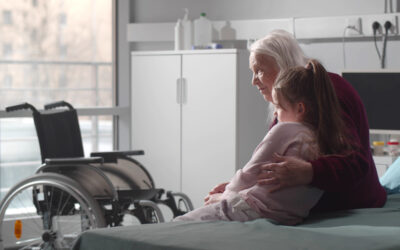
Augmented Cognition
A blog presenting healthcare voice-AI speech recognition insights and disruptive innovation news
The realities of successfully integrating natural SR into mental health services
Workflow benefits alone do not determine the success of integrating new tech into mental health services. As MHPs begin their journey of digital transformation, a wide range of factors need to be considered, including ease of implementation, user adoption, patient data security and costs.
How natural speech supports vital transformation for mental health services
Rising demand in NHS mental health services and the wider community are facing unprecedented pressure making diagnosing and treating conditions a considerable challenge. Advances in AI speech recognition can support the vital transformation of the service and of its AHPs and MHPs.
How AI-powered SR delivers holistic improvements across MDTs in healthcare
The UK healthcare system is complex. Patient journeys are touched by many people, all with their unique care roles to play, which can compound processes when collaboration between providers becomes ineffective around the flow of patients and the flow of patient information.
Reducing the impact of DTOC and bed shortages on the most vulnerable patients
While DTOCs, bed shortages and needless hospital stays impact every patient and add pressure to the 7m+ waiting for treatment backlog, the NHS still has a responsibility towards society’s most vulnerable: the frail elderly and sick children.
How speech recognition technology can support a national bed shortage
With NHS bed stocks infamously limited and showing no signs of growing in a way that’s substantially impactful, what approaches can we take to address this major challenge? And how can speech recognition technology help?
Can the advantages of clinical voice-AI speech recognition technology help reduce DTOC?
DTOC is not just another step in the patient journey, but crucial to care outcomes. Since 2014 the rate of delayed transfers has continued to rise. Can technology built to make HC more efficient, influence DTOCs and NHS’ ability to deal with them?
Why speed is key to improving patient journeys and diagnostics –
With growing waiting lists, strict government targets, and increased demand, everyone involved in diagnostics is under pressure to work faster. But efficiency and speed are also vital to improving the most important thing of all: patient journeys and their outcomes.
The symbiosis of technology in diagnostic reporting…
Pathology as a critical department on the path to diagnosis and treatment, has a vital role to play in simplifying and improving the patient journey;
but with structured reporting, restrictive workflows, and legacy technology, unlocking mobility, efficiency and accuracy is proving to be a significant challenge.
Why reporting from anywhere is the future of radiology
Technology has a vital role to play as the radiology profession continues to recover from the impact of the pandemic, workforce shortages, backlogs and changing ways of working. The cloud will be key in maximising productivity gains as radiologists and Trusts look for more efficient ways of working.
How integrated speech drives Radiologists’ performance
Speech recognition empowers radiologists to work more accurately, efficiently and deliver a higher quality of reporting. But unlocking these considerable performance benefits is only possible when a speech recognition solution is deeply integrated with how radiology departments want to work.









